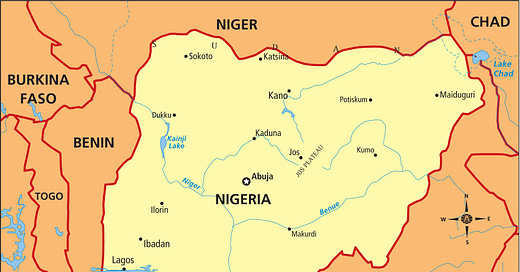The Government of Nigeria has recently purchased a new customised Airbus A330 so that President Bola Tinubu can fly around the world in the manner that befits a President, or more simply in style. The acquisition of this jet adds to an already substantial fleet of about 11 aircraft. No one knows exactly how much the jet cost because the government has not said. Presidential spokesperson Bayo Onanuga claimed that the jet was bought at a favourable price and would ultimately save Nigeria significant sums in maintenance and fuel costs.
I don’t think anyone would mind, save for the fact that the country is currently experiencing skyrocketing inflation, with the value of the naira plummeting by approximately 70 per cent against the US dollar in the past year alongside fuel prices that have tripled since President Tinubu partially cut fuel subsidies upon taking office. Add to this that as of June 2023, the food inflation rate in Nigeria stood at around 26 percent compared to June 2022. These are the problems confronting Africa’s most populous country at this moment. What this all means and how it translates on the ground is that a significant proportion of Nigeria’s 211 million people cannot buy cooking gas and cannot buy food. I am not even talking about petrol because a ownership of a motor car implies one is in a different socio-economic bracket. I am talking about the ordinary people.
But this is not all; the purchase of the jet follows a string of other government expenditures that fixes one’s attention. These include substantial allocations for renovating the president's living quarters, procuring new vehicles for the First Lady's office, and completing the refurbishment of the vice-president's official residence. Moreover, this pattern of lavish spending extends beyond the federal level to state administrations as well. And it is all funded by the citizens through taxes.
These actions of the Nigerian government, particularly the purchase of an expensive presidential jet amidst severe economic challenges, reveal much about the current state of governance in the country. This decision, along with other high-profile expenditures, paints a picture of a leadership that appears disconnected from the realities faced by its citizens.
At the heart of the matter lies a stark contrast between the government's spending priorities and the pressing needs of the population. While Nigerians struggle with skyrocketing inflation and a rapidly devaluing currency, their leaders allocate substantial funds for presidential luxuries. This disparity not only raises questions about fiscal responsibility but also fuels a growing perception of elitism within the government’s ranks.
The administration's approach to this controversy further highlights potential issues with transparency and effective communication. By hesitating to disclose the exact cost of the jet and adopting a defensive stance, the government risks eroding whatever public trust it has with its citizens. This behaviour suggests a leadership that may be struggling to justify its decisions to an increasingly sceptical populace.
Moreover, the timing of this purchase during an economic crisis points to a possible imbalance between short-term actions and long-term planning. While the government defends the jet as a cost-saving measure in the future, this reasoning seems at odds with the immediate financial constraints facing the nation. It raises concerns about the administration's ability to prioritise and address the most urgent needs of its citizens.
The controversy also sheds light on a broader governance culture that extends beyond the federal level. Reports of similar lavish spending by state-level administrations indicate a systemic issue, where the trappings of power often take precedence over efficient and responsible use of public resources. This culture creates a widening gap between the rulers and the ruled, potentially sowing seeds of social unrest if left unaddressed. Despite implementing some austerity measures, such as cutting fuel subsidies, the government's continued high-level spending suggests a reluctance to lead by example in terms of fiscal restraint. Austerity is for the citizens, it’s not for the President or Government.
What is truly mind boggling is that the splash the cash actions of the state and its officials takes place just after the “End Bad Governance in Nigeria” protests earlier this month where 13 of the protesters lost their lives as soldiers and police tried to maintain control. To my mind this suggests that Nigeria’s President and state officials are so assured of their positions of power that they can do anything they want to because they are certain those positions can never be threatened. Alternatively, they may not understand that hungry people are angry people.





